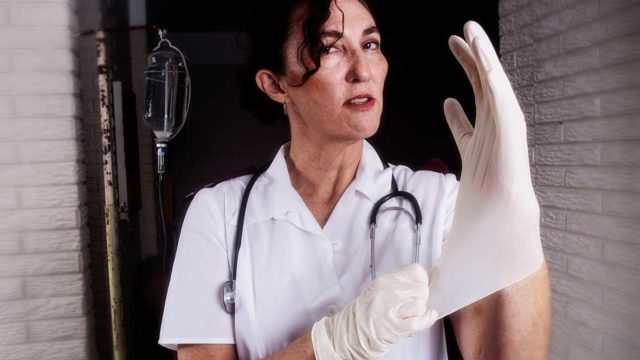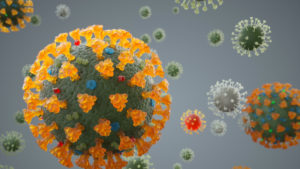Isopropyl alcohol, the key ingredient in alcohol-based hand sanitisers, is in short supply around the world.
If you’re in the wrong place in the US, plastic bottles are hard to come by as well.
Hand sanitiser king Paul Hsylop says he saw the writing on the wall in January when a Chinese bottle supplier hiked their prices by 100 per cent.
The Zoono (ASX:ZNO) founder bought up plastics stock, had the New Zealand packaging factory make a mould, and started making his own bottle within 10 weeks.
He says Zoono has also brought making raw materials for the disinfectants in-house as well: construction of a chemical reactor in South Carolina started two months ago and should be finished by August.
The great hand sanitiser run
Zoono became a crowd favourite late last year when African swine fever was the disease du jour (a pandemic that is still spreading rapidly), but moreseo in January when it became known for hand sanitiser; of the five-odd digit cleansing companies on the ASX, it’s still the only one to have a product for sale.
But it’s unclear how long the hand sanitiser market will continue its clean sweep and Hsylop isn’t betting the farm on that run continuing.
He says about 15 per cent of the business is in hand sanitiser sales. The rest, for which the company sent off $NZ11m ($10.3m) worth of invoices in April, is for surface disinfectants sold to commercial and animal handling businesses.
Hyslop expects the next wave of demand to come from companies following government hygiene guidelines in order to reopen.
“If anything consumer sales might drop off a bit but our business to business sales may increase, because a lot of these businesses have been closed [and need to get the doors open fast],” he told Stockhead.
The other factor is that new clients, such as Rentokil which started buying Zoono surface products as world stocks of disinfectants dried up, are likely to continue buying once the products are embedded in their regimen.
Teetotal deals
Zoono’s products do not contain alcohol but instead use benzalkonium chloride, a commonly used antimicrobial preservative.
It lasts longer on surfaces and doesn’t irritate the skin as much, but according to studies leaned on by the US Centre for Disease Control (CDC) is less effective against COVID-19 than strong alcohol for hand cleaning and on surfaces.
However, religions such as Islam and Hinduism forbid alcohol and Zoono is cleaning up in countries where those religions dominate.
Zoono has distribution arrangements for various countries in the Middle East and in India, where distribution partner Bhardwaj received the final sales approvals last year, Hyslop says.
COVID-19 infection rates are rocketing in both areas and Bhardwaj has spent $300,000 on surface products “in the last couple of weeks”.
Zoono has just signed a deal with a Russian company to sell mainly surface products, which will bring in $1m in the first year.
Getting into China
The biggest demand in China is actually for animal products to deal with African swine flu, where Zoono has several distribution agreements.
One disappointment is the deal with Eagle Health, with which Zoono signed a “co-branding” agreement in February. Eagle would take bulk imports of Zoono’s formulations into Xiamen China and do the labelling, packaging and distribution.
Eagle went into a trading halt at the start of March, then was suspended in April, for failing to lodge its full-year report for calendar 2019.
“Eagle have bought quite a bit of product off us,” Hyslop said.
“It was a non-exclusive deal and it looked like quite a good company on paper. All the people I dealt with were quite good people to be honest, but obviously they’ve got their own issues. I’m not really hopeful that there’ll be much more business there.”
You might be interested in












